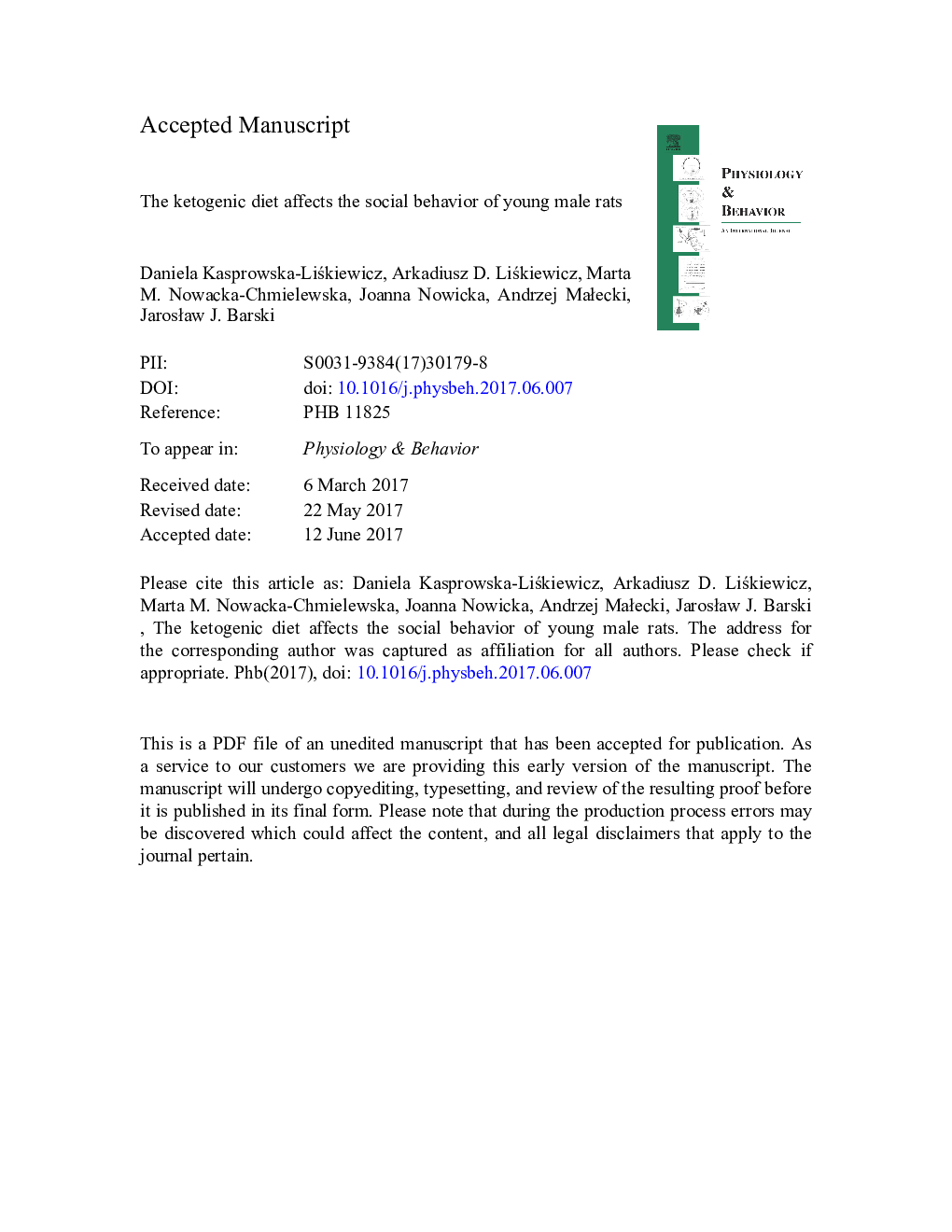| Article ID | Journal | Published Year | Pages | File Type |
|---|---|---|---|---|
| 5593639 | Physiology & Behavior | 2017 | 33 Pages |
Abstract
Four-week-old Long-Evans males were treated with the KD for 4 subsequent weeks. Afterwards, behavioral tests were performed in order to evaluate sociability, locomotor activity, working memory, and anxiety-related behaviors. Additionally we performed the social interaction test in animals that were receiving β-hydroxybutyrate or acetone. We have observed that rats fed with the KD showed increased social exploration in three different experimental settings. We did not observe any changes in the level of social interactions in animals treated with exogenous ketone bodies. The results did not show any difference in mobility or anxiety-related behaviors or working memory between the animals fed with the KD or standard rodent chow. In conclusion, we showed that the KD affects the social behavior of wild-type young adult male rats, which was not associated with other behavioral changes.
Related Topics
Life Sciences
Biochemistry, Genetics and Molecular Biology
Physiology
Authors
Daniela Kasprowska-LiÅkiewicz, Arkadiusz D. LiÅkiewicz, Marta M. Nowacka-Chmielewska, Joanna Nowicka, Andrzej MaÅecki, JarosÅaw J. Barski,
